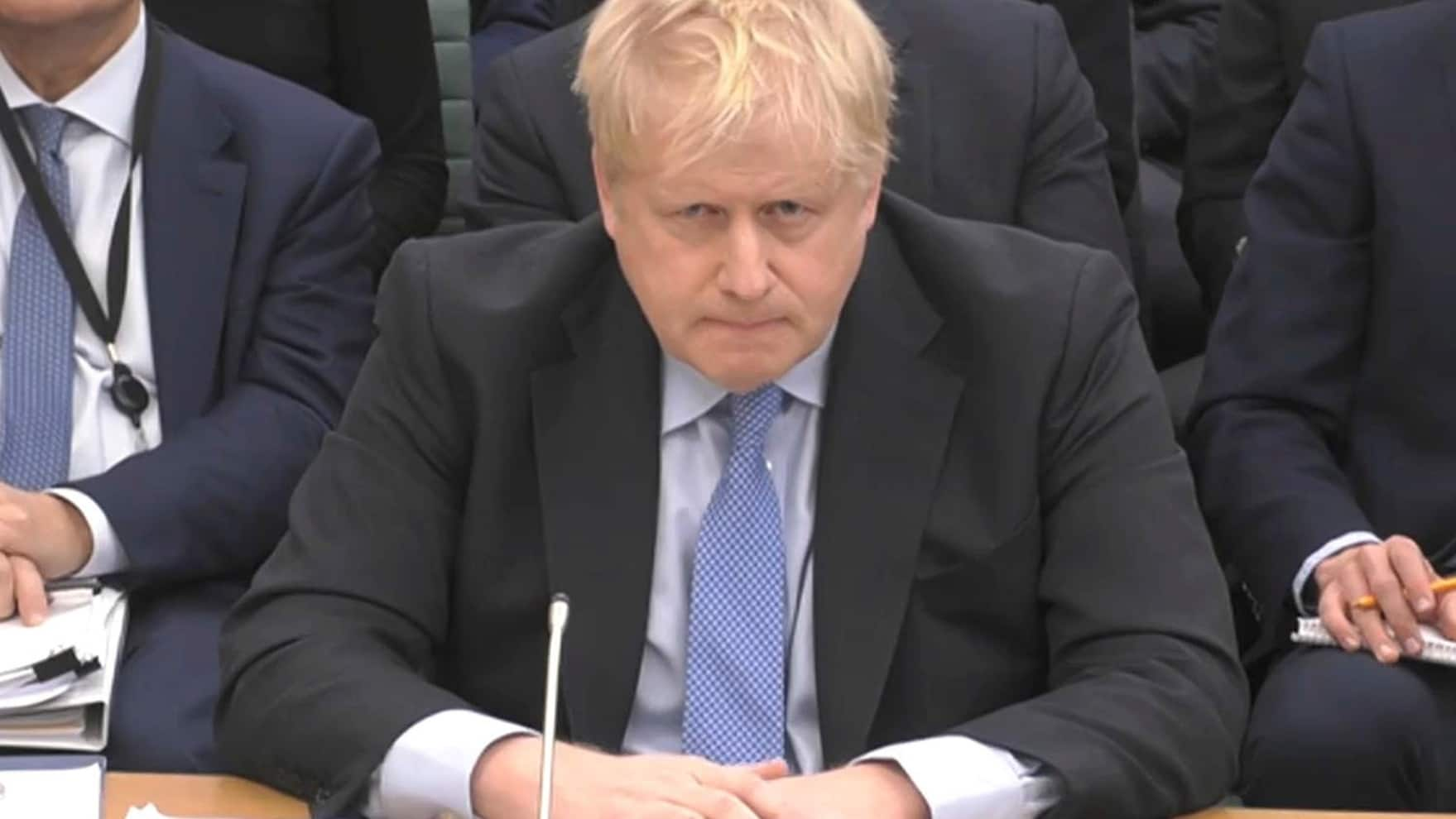Former British prime minister Boris Johnson says he's quitting as a lawmaker after being told he will be sanctioned for misleading Parliament.
Johnson quit after receiving the results of an investigation by lawmakers over misleading statements he made about "partygate," a series of rule-breaking government parties during the pandemic.
His lengthy resignation statement contained a ferocious tirade aimed at his political opponents — and at his successor, Rishi Sunak — that could blast open tensions within the governing Conservative Party.
In the statement, Johnson accused opponents of trying to drive him out — and hinted that he might try to return.
"It is very sad to be leaving Parliament — at least for now," he said.

Johnson said he had "received a letter from the Privileges Committee making it clear — much to my amazement — that they are determined to use the proceedings against me to drive me out of Parliament."
He called the committee a "kangaroo court."
"Their purpose from the beginning has been to find me guilty, regardless of the facts," Johnson said.
The resignation will trigger a special election to replace him as the MP for a suburban London seat.
Johnson, whose career has been a roller coaster of scandals and comebacks, led the Conservatives to a landslide victory in 2019 but was forced out by his own party less than three years later.

He had been awaiting the outcome of an investigation by a House of Commons standards committee over misleading statements he made to Parliament about a slew of gatherings in government buildings in 2020 and 2021 that breached pandemic lockdown rules.
Police eventually issued 126 fines over the late-night soirees, boozy parties and "wine time Fridays," including one to Johnson, and the scandal helped hasten the end of his premiership.
Johnson faced possible suspension
Johnson has acknowledged misleading Parliament when he assured lawmakers that no rules had been broken, but he said he didn't do so deliberately.
He told the committee he "honestly believed" the five events he attended, including a send-off for a staffer and his own surprise birthday party, were "lawful work gatherings" intended to boost morale among overworked staff coping with a deadly pandemic.
The committee is expected to publish its report in the next few weeks, and Johnson could have faced suspension from the House of Commons if he was found to have lied deliberately.
By quitting, he avoids a suspension that could have seen him ousted from his Commons seat by his constituents, leaving him free to run for Parliament again.
His resignation statement suggested he was mulling that option and was highly critical of Sunak, who served as Treasury chief in Johnson's government before jumping ship with many other colleagues in July 2022 — moves that forced Johnson out.
"Just a few years after winning the biggest majority in almost half a century, that majority is now clearly at risk," Johnson said. "Our party needs urgently to recapture its sense of momentum and its belief in what this country can do."
Johnson resigned hours after King Charles III rewarded loyal Johnson aides and allies with knighthoods and other honours, a political tradition for former prime ministers that drew cries of cronyism from the ousted leader's opponents.















![Ghosts: Was [Spoiler] Being Sucked Off Or Were They Dying For Good? I Have A Theory After The Season 3 Finale](upload/news/image_1714730406_68276089.jpg)

